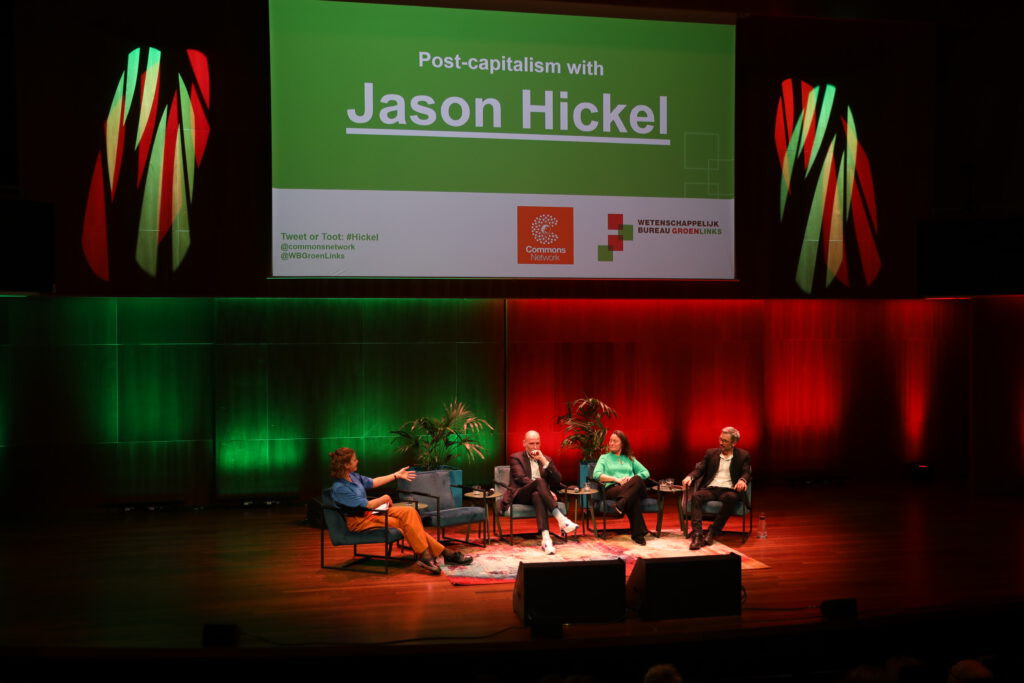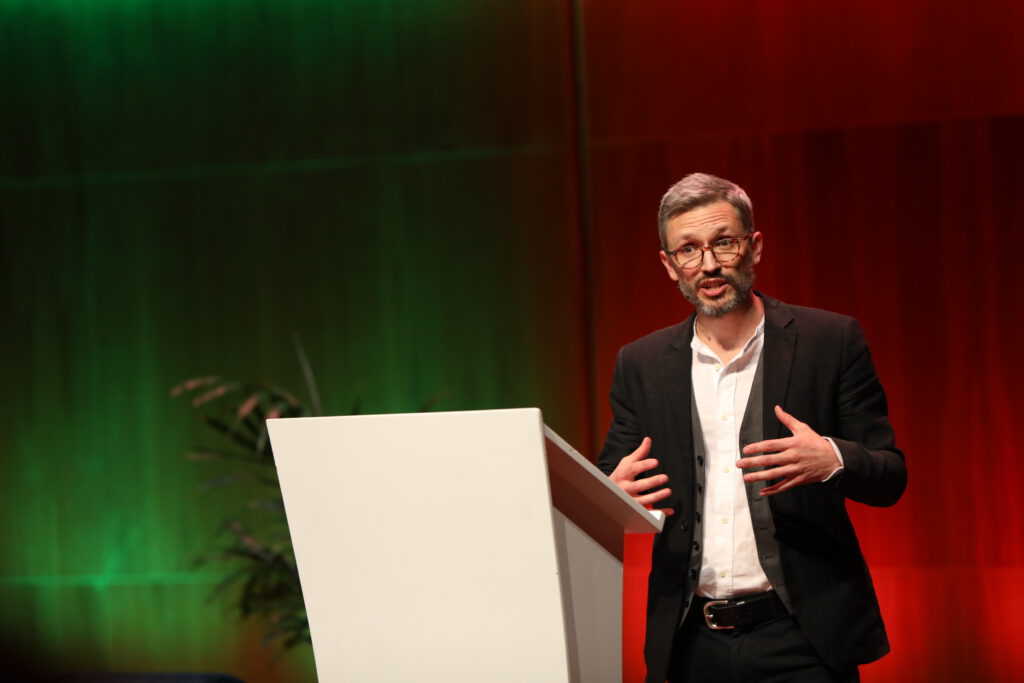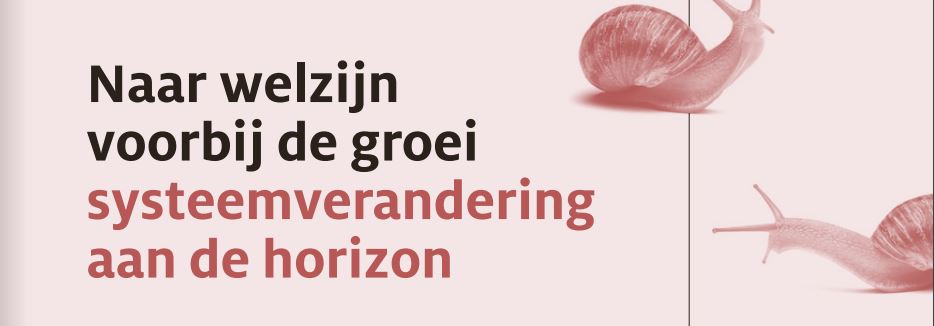Last week, Professor Jason Hickel, one of the leading figures in the global degrowth movement, spoke at the invitation of Commons Newtork and the Greens in a special hearing in Dutch Parliament.
In addition, Commons Network and others organised several other events. For instance, Professor Hickel spoke to several civil servants from various ministries and researchers from planning agencies at a meeting set up in collaboration with SDG Netherlands. He also participated in a strategy session with social movements and civil society organizations at De Nieuwe Anita and he spoke in front of a sold-out Tivoli Vredenburg during an evening organised with the political think tank of the Greens.

Commons Network is very pleased with the success of the visit of Professor Hickel and the attention it generated for degrowth thinking in the national media. It is vital to explore transition paths to a post-growth economy and Hickel’s thinking provides direction here.
Recently, Sophie Bloemen and Winne van Woerden of Commons Network wrote the Essay “Naar welzijn voorbij de groei: Systeemverandering aan de horizon” (only in Dutch) on the degrowth movement, local practices of the commons and the need for a radically different economic and democratic narrative.
We reflect on the growing movement of new economic thinkers who question the sustainability of unlimited economic growth on a finite planet and outline the contours of a post-capitalist transition beyond growth.
We argue that introducing ecosocialist policy proposals put forward by the degrowth movement such as a shorter working week, a job guarantee and a fairer distribution of wealth and income must be accompanied by embracing transformative practices that are already emerging from the bottom-up, and supporting and strengthening the local economy and the cooperative sector.
As the degrowth movement argues, taking the growth dependencies out of our economy to decouple livelihood security from economic growth requires a radically different design of the welfare state, stemming from a new understanding of social security. In our latest Essay, we argue that investing in the commons is key to this.

Among other things, commons respond to non-material needs such as feeling part of a community, having the space and time to care and having a perspective of a livable future. Here, caring for people and environment merges with fundamental human needs such as the need for reciprocity and for connection. Moreover, commons initiatives experiment with practices of direct democracy: people are empowered to have influence and control over their immediate environment. Together with the economic aspect of shared ownership, this political aspect also makes the commons emancipatorory.
The call to curb capitalism’s built-in expansionist need and to replace it with political action focused on sustainability, redistribution and locality is getting louder and louder. The task now is to expand our imagination about what our economy could look like. What practices could it serve? What values could be at its core? The degrowth narrative and the ideas and practices of the commons movement are key to this.
The Essay can be read online here
The article was posted in Idea, the independent journal of the Mr Hans van Mierlo Foundation, the political think tank of D66. Commons Network welcomes the fact that the Mr Hans van Mierlo Foundation is creating the space to feed D66 as a liberal party with the political ideas of degrowth and commons thinking around a fundamental transformation of the economy.

 ☰
☰